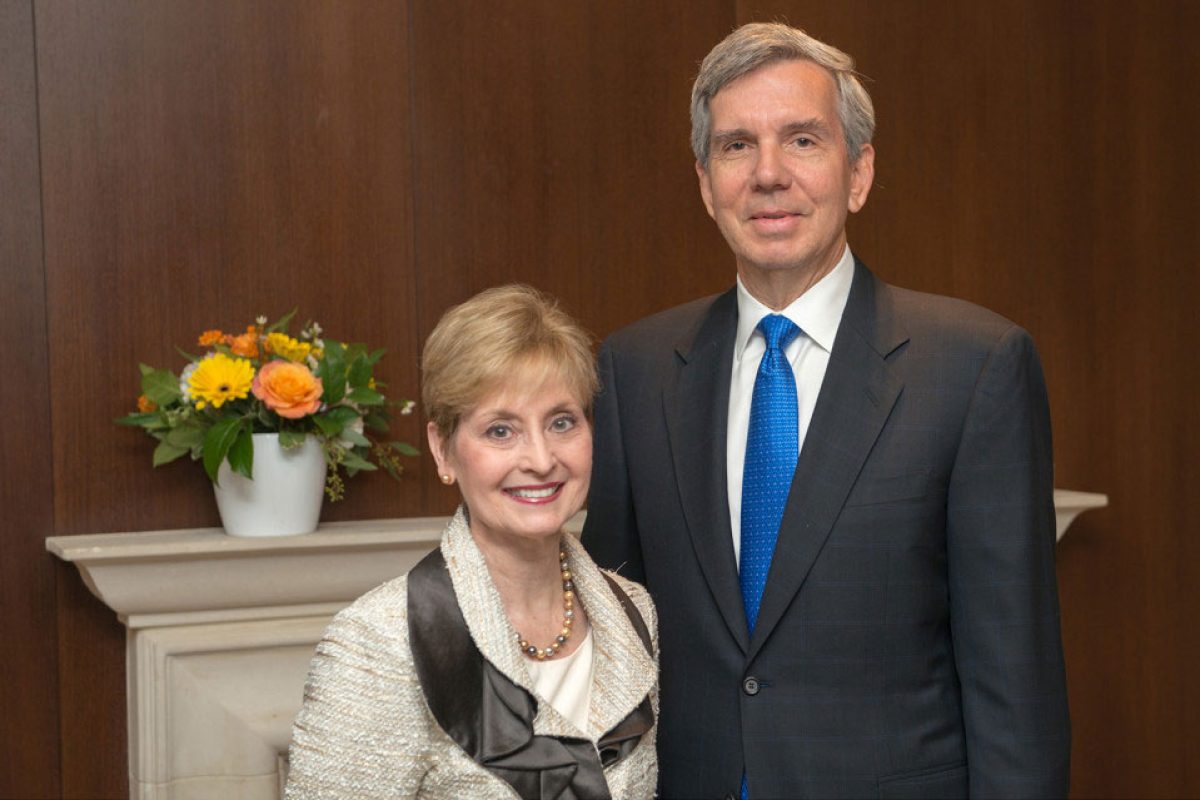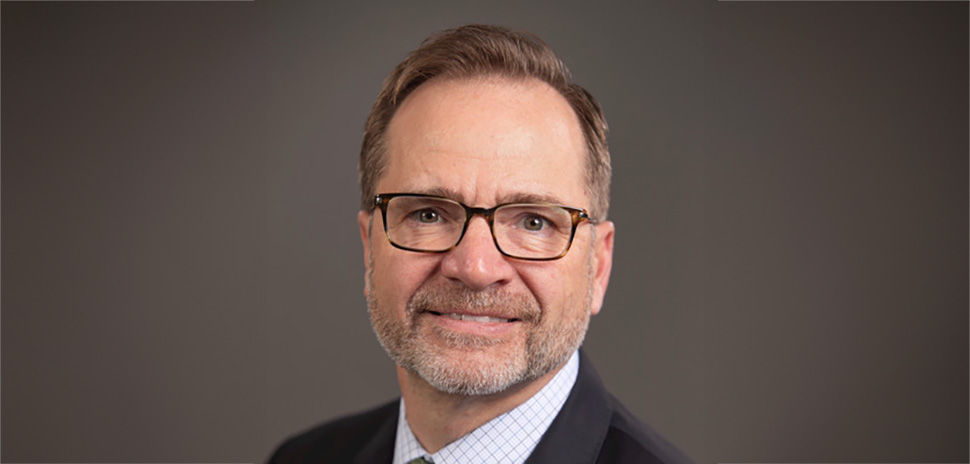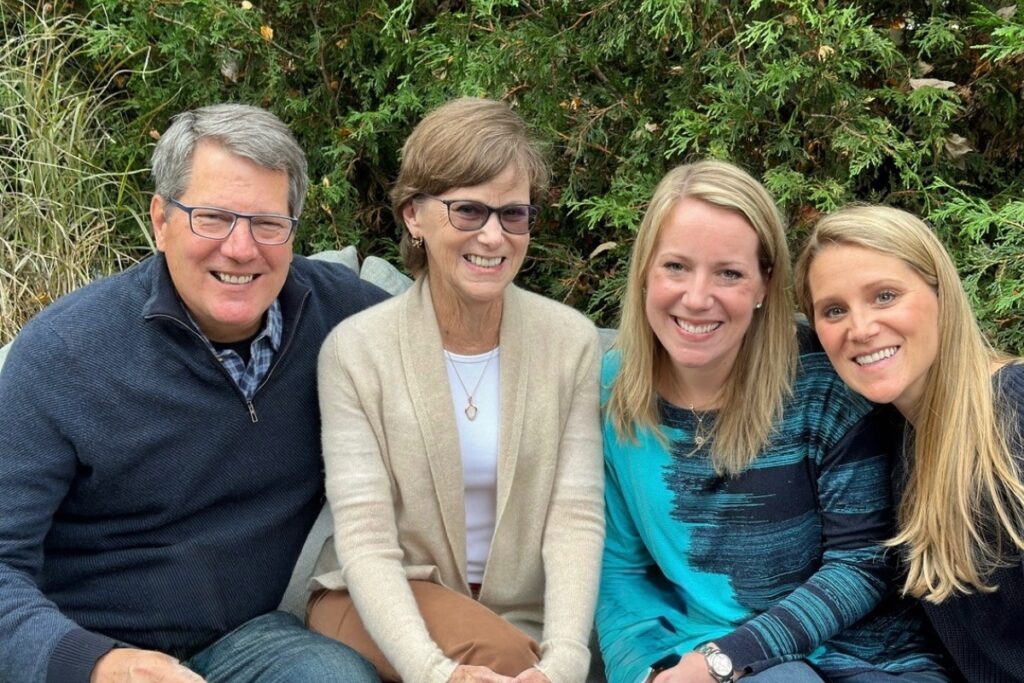Put simply, scientific research begins with a question, followed by a series of experiments, which—in some cases—eventually lead to a major discovery. Yet, how do these discoveries make their way from the lab to those who will benefit from them most—the patients?
University of Chicago Medical Center Trustee Tom Duckworth was inspired to explore this question and see what he could do to help.
Duckworth has a long history of dedicated service to the University of Chicago, having served on the University of Chicago Cancer Research Foundation Board of Trustees for 18 years and as a Medical Center Trustee since 2014. He also serves as the inaugural chair of the Medical Center Board of Trustees Science Advancement Committee.
“Through my many years of involvement with the University, I’ve encountered a number of impressive cancer researchers—from Chuan He to Susan Cohn to Geoffrey Greene, and countless more,” Tom said. “After those meetings, I’ve often wondered: How do we get their research out into the world?”
Unfortunately, the cadre of innovative therapies that make it to market is a disappointingly small fraction of the potential number. Once a drug or therapeutic compound is identified in the lab, it takes an average of 12 years for it to be used in the clinic.
Recognizing that today’s funding environment is especially challenging due to declines in federal funding and reluctance among pharmaceutical companies to finance early-stage research, Tom and his wife, Connie, sought to fill this critical gap. Together, they committed more than $1 million to establish the Duckworth Family Cancer Fund at the University of Chicago Medicine, which will help accelerate the pace at which promising cancer discoveries are brought to market.
“We wanted to do something in cancer research where our philanthropy could make a difference,” Tom said. “The cancer researchers at UChicago Medicine have so many great ideas, but those ideas can’t get off the ground without philanthropy or other sources of revenue.”
The Duckworth family’s gift will expand the partnership between the University of Chicago Medicine Comprehensive Cancer Center and the Polsky Center for Entrepreneurship and Innovation, the University’s business accelerator, and tech transfer and commercialization hub.
“This generous gift from the Duckworth family will help support our faculty working on oncology-related discoveries as they advance their innovations to the clinic,” said Starr Marcello, deputy head and executive director of the Polsky Center. “By also supporting the technology transfer arm of the Polsky Center, this funding will enable the creation of new University of Chicago ventures, leading to life-changing impact.”
The Duckworth Family Cancer Fund will incentivize entrepreneurial cancer researchers by providing four competitive research awards of $125,000 each over the course of two years to advance research projects with imminent commercial promise, including those that extend work with proven market viability and/or research that requires limited funding to validate readiness for commercialization.
The fund also supports a cancer fellow who will help assess, refine, and advance early oncology technologies. In addition, the family’s investment will underwrite the Duckworth Family Cancer Showcase, a forum for cancer researchers to present their projects to venture capitalists and industry leaders, and gain early insight on their ideas.
Finally, a competitive Duckworth Family Cancer Startup Award of $200,000 will jumpstart the development of a leading oncology endeavor, positioning it for successful early-stage investments.
“Through our previous philanthropy, Connie and I have seen the University of Chicago successfully leverage our dollars to attract additional funding,” Tom said. “This gift allows us to explore commercialization as an additional revenue stream to sustain future research, hopefully contributing to lower health care costs and improved lives.”
Importantly, the fund’s initiatives will be consistently evaluated to determine which commercial pathways and approaches are most effective.
“We are grateful to the Duckworths for their foresight and commitment to build an infrastructure for cancer research and commercialization that not only promotes innovation here at the University of Chicago, but also sets a standard for other institutions,” said Michelle M. Le Beau, PhD, director of the Comprehensive Cancer Center. “Their investment will help our researchers explore new approaches for leveraging commercial pathways, ultimately allowing us to improve cancer outcomes more rapidly.”
Published June 2019




